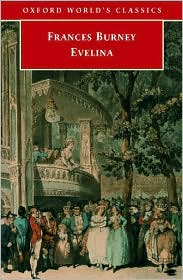
"Richard II was really a good king, and Henry IV was an evil rotten usurper" could just as well have been the title, but I suppose they needed something a little more catchy. I really enjoyed Terry Jones and Co.'s thorough examination of late 14th century politics, though like many current nonfiction titles, it suffers a bit from too much detail. It's a fascinating and fun read, with some juicy speculation thrown in.
Chaucer was the most famous and respected poet of his day; he was a prominent man in a pretty small world and his literary works (in English!) were very popular. And yet no one seems very sure of when he died; in 1400 he just disappeared from the records. Lesser poets had fancy tombs and exact death dates, but all Chaucer got was a Tudor-era memorial tablet with a somewhat speculative date. Now why was that? Could it be because Chaucer's opinions and habit of writing in English became inconvenient when Henry IV usurped the throne from Richard II? Could Thomas Arundel, the ruthlessly political Archbishop of Canterbury and the power behind Henry's throne, have had something to do with it? Did Chaucer "disappear" the same way Richard II did, and was he left to die in prison? We'll never know, but it's fun to speculate.
The entire first half of the book is dedicated to redeeming Richard II's good name; Jones examines his reign, Henry IV's takeover, and the subsequent propaganda and cover-up. His idea is that Henry, like any usurper, needed to rewrite history and put himself in the right, so he portrayed Richard as an oppressive tyrant and himself as a welcomed liberator. In fact, however, Henry was not nearly as nice as Richard had been, and his reign ushered in a new era of severe punishment for having the wrong opinions. It gets a bit complicated, but in particular, religion became much more controlled, thanks to Arundel's need to clamp down on unorthodoxy and criticism of the Church.
At any rate, once we do get to Chaucer in the second half of the book, Jones points to clues in his writings that explain just why Arundel would have wanted him out of the way. Such clues aren't hard to find--the famous Pardoner's Tale is a big one--but since most of us aren't familiar with the intricacies of 14th-century Church politics, they are easy to misunderstand. Luckily Jones makes the topic both clear and interesting. All this leads into the speculation on how and why Chaucer disappeared in 1400, whether he died then or later, and why anyone bothered to put up a memorial to him about 150 years later. It's all quite interesting and entertaining, though a bit long-winded. If you're interested in medieval history, it's a good read, but if not, it will be
far too much information for you.
 This was my first book in the Chunkster Challenge 2009. Here's my list so far of books I plan to read:1.
This was my first book in the Chunkster Challenge 2009. Here's my list so far of books I plan to read:1. Who Murdered Chaucer? -- Terry Jones2. North and South -- Elizabeth Gaskell3. A Distant Mirror -- Barbara Tuchman (more 14th-century goodness!)4. Evelina -- Fanny Burney5. Liberal Fascism -- Jonah Goldberg6. The Forgotten Man -- Amity Shlaes7. A Dickens novel, but I can't decide between Our Mutual Friend, The Old Curiosity Shop, and Bleak House.
 I'm not quite sure how to rate this book. It's absolutely fantastic writing. My favorite line in the story was, "She is tiny. In the same way that a stick of dynamite is tiny." Isn't that perfect - unexpected, very descriptive, and short!?! Unfortunately, this book just felt sad around the edges all, and I really don't like sad books.
I'm not quite sure how to rate this book. It's absolutely fantastic writing. My favorite line in the story was, "She is tiny. In the same way that a stick of dynamite is tiny." Isn't that perfect - unexpected, very descriptive, and short!?! Unfortunately, this book just felt sad around the edges all, and I really don't like sad books. 



















